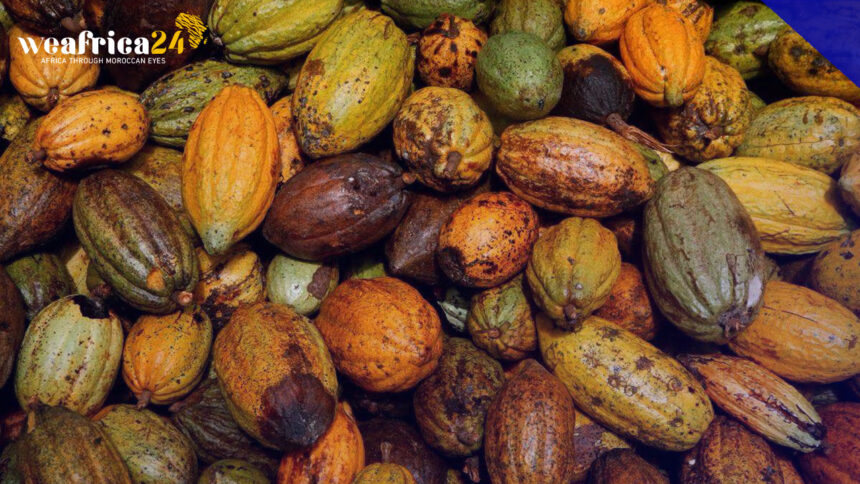The price of cocoa on the London International Exchange significantly increased on Wednesday, hitting a record high not seen in nearly fifty years. Unfavorable weather in West Africa is to blame for this startling increase, which poses a danger to the manufacturing prospects of key suppliers that provide the main raw material used in the creation of chocolate.
On Wednesday, the benchmark September contract for cocoa experienced a notable surge, with prices rising over 2% in the London market. The contract reached 2,590 pounds per metric ton, marking a significant milestone. Notably, the session high of 2,594 pounds reached during this surge represents the highest price observed since 1977.
Due to the fierce competition for cocoa beans, which are mostly produced in Ghana and Ivory Coast, prices are increasing. This season, lesser cocoa imports into Ivory Coast docks for export have decreased by almost 5%.
In a recent development, the International Cocoa Organization (ICCO) has extended its forecast for a global cocoa supply deficit. Previously anticipated at 60,000 metric tons, the deficit now looms larger at a considerable 142,000 metric tons.
In its analysis, Refinitiv Commodities Research predicts the West African cocoa belt to experience a period of moderate to high rainfall over the forthcoming 10-day span.
Cocoa prices experienced an upward trajectory in New York as well, with the September contract marking a remarkable gain of 2.7% to reach $3,348 per metric ton. This surge signifies a significant milestone, as it represents the highest price observed in the past 7 and a half years.
Among other soft commodities, the July raw sugar market experienced a decline of 0.46 cents, equivalent to a 2% decrease, settling at 22.57 cents per pound. Similarly, Arabica coffee saw a decline of 5 cents, representing a 3% drop, settling at $1.6195 per pound. Robusta coffee, on the other hand, recorded a more substantial decrease of $99, reflecting a decline of 3.6%, with prices settling at $2,616 per metric ton.







